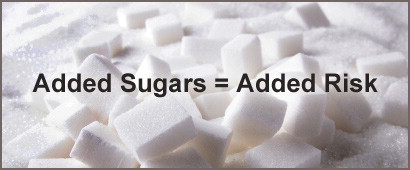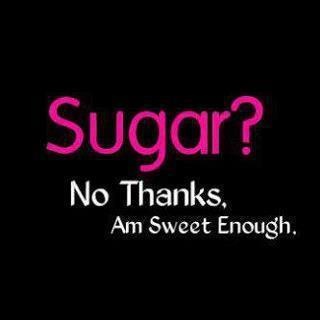I’m always game for a fresh slice of layer cake or fresh fruit pie. And I want to support my friends who are pastry chefs by tasting their dishes. I try and leave a little room for dessert when I dine out.But like many of us, I’m trying to reduce my sugar intake. And for good reason. Sugar is linked to a number of health issues. These include:
- Obesity. This in itself can lead to a litany of health issues from cardiovascular disease, high blood pressure and stroke to Type 2 diabetes.
- Increased triglyceride levels, which may increase your risk of heart disease.
- Tooth decay
- Liver damage
- Increased uric acid which can lead to kidney disease
- Metabolic dysfunction whichleadsto other illnesses
- Mental impairment (e.g., links to dementia).Remember the “Twinkie Defense?”
- Increased risk for cancer. Many say sugar feeds cancer cells. More accurately, sugar feeds fat cells, and obesity can increaseyour risk for cancer. There are many articles about sugar and cancer. I suggest this one from MD Anderson Cancer Hospital.
And that’s just the tip of the sugar cube. It seems like every month a new study comes out revealing more bitter truths about sugar.Other references:Source: Mayo Clinic Source: NCBI
According to the U.S. Dietary Guidelines added sugars account on average for almost 270 calories, or more than 13% of calories per day in the U.S. population. Beverages (e.g. soft drinks, sugared teas, sweetened coffee, energy drinks and alcoholic beverages) account for 47% of all added sugars. The remainder includes snacks and sweets, including but not limited to frozen desserts, jams, syrups, candies and pastries. The Guidelines recommend that less than 10% of our dietary intake come from added sugars. Source.
The big culprits areadded sugarswhichare sugars and syrups that are added to foods or beverages when they are processed or prepared. You can find a list at ChooseMyPlate.gov.
MD Anderson provides this list of common terms for “sugar” found on many package labels. Next time you read a food label count how many of these may be listed:
- fructose (natural sugar from fruits)
- lactose (natural sugar from milk)
- sucrose (made from fructose and glucose)
- maltose (sugar made from grain)
- glucose (simple sugar, product of photosynthesis)
- dextrose (form of glucose)
Artificial sweeteners (aka “sugar substitutes”) are certainly no better. There have been a number of reports linking artificial sweeteners to cancer risk. However, there have probably been just as many issues raised about the reports since tests were done on laboratory mice and not humans. Frankly, the word “artificial” should be enough of a deterrent.
I guess you have to take the bitter with the sweet. Unless you have a medical condition where consuming sugar puts you at risk, I don’t think you need to give up sugar forever. You need to reduce and manage your consumption.
1. Start with eatinghealthier natural sugar options found in fruits, starchy vegetables and milk.
2. Avoid purchasing processed and packages foods, even the ones labeled “healthy.” Usually they have hidden sugars. Read the labels.
3.Enjoy that sliver of homemade pie in moderation. Skip the whipped cream or ice cream. You don’t need to give up what you love. Just love it a little less by reducing your consumption.
4. If you opt for a cocktail choose one without fruit juice, tonic or simple syrup which all have sugar. The Dietary Guidelines note that one serving is equivalent to1.5 fluid ounces of 80 proof distilled spirits (40% alcohol).
5. There are heart health benefits to drinking red wine. But there are also health risks and added calories including those from sugar. The Dietary Guidelines note if you choose to consume wine the recommendation is one glass of wine (5 oz.) for women and two glasses for men per day
I’ll sweeten the pot by noting that once you reduce sugar in your diet you’ll discover some fabulous changes in your body such as decreased belly fat (provided you are also exercising), clearer skin and less irritability from sugar spikes.
I know it’s hard because it seems like everything contains some form of sugar. But just tell yourself before you add that spoonful into your coffee, reach for that cookie, munch on that so-called healthy energy bar or stock up on ice cream and sodas: “I’m sweet enough.”
Please share:www.melanieyoung.com Follow:Twitter@mightymelanie
Facebook.com/FearlessFabulousMelanie
Instagram.com/MelanieFabulous











